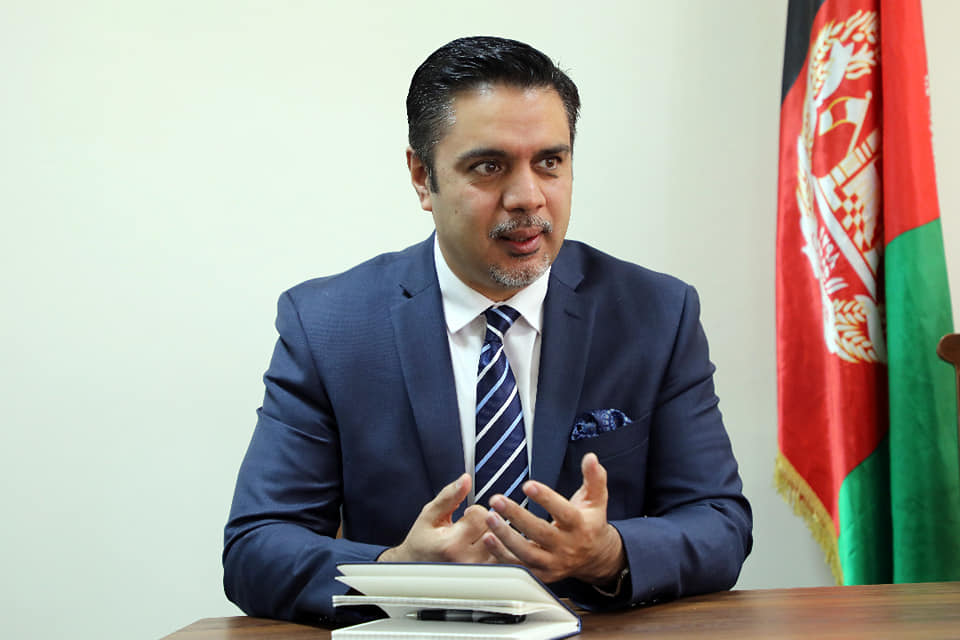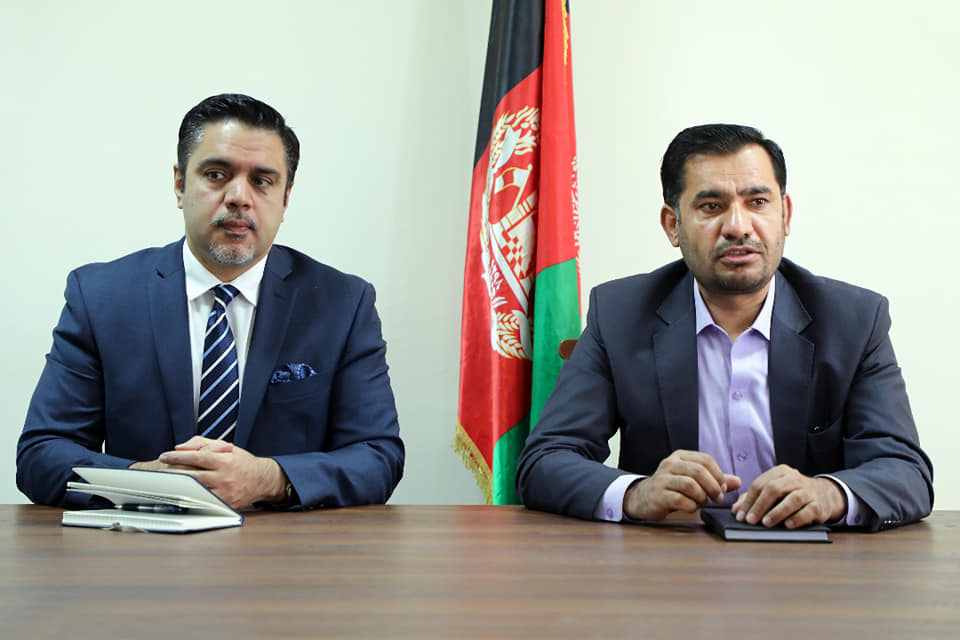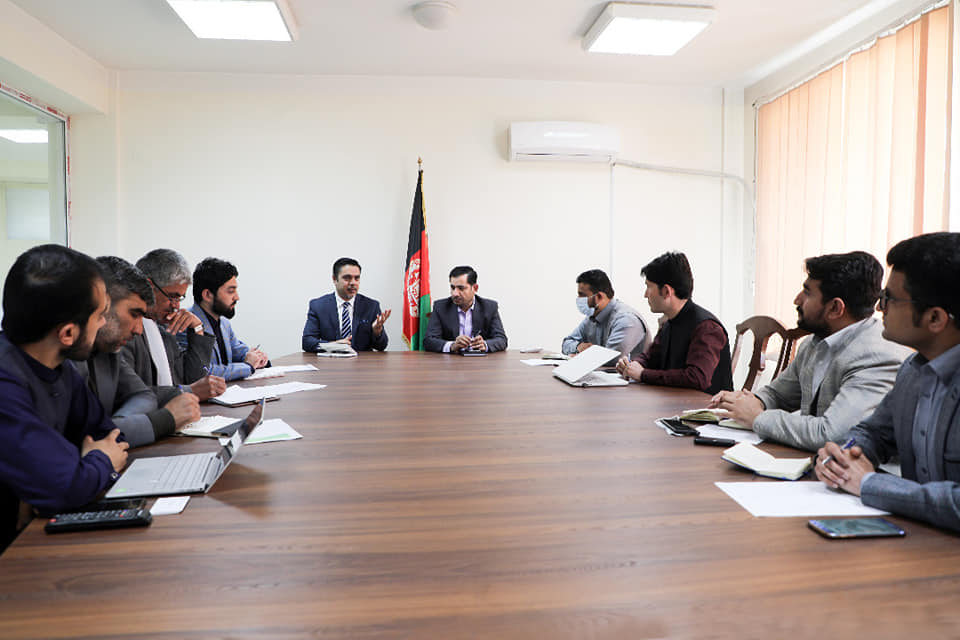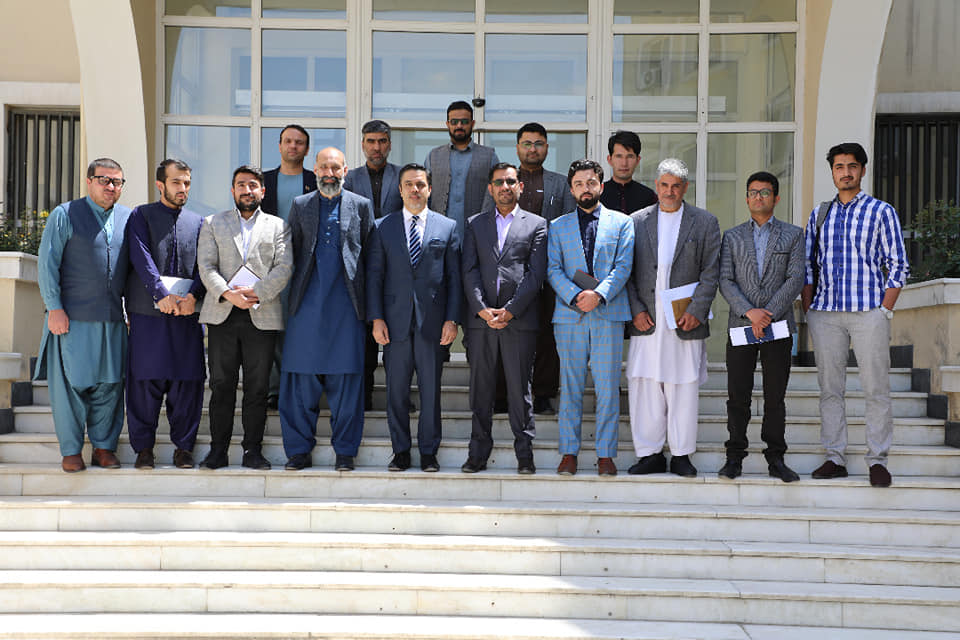May 14, 2021

Kabul: - Following his early meeting with the Director-General of the National Environmental Protection Agency of Afghanistan (NEPA), Director-General Ambassador M. Ashraf Haidari met with the key technical personnel of NEPA this Tuesday. The meeting built on his early discussion with the NEPA leadership of the programs, projects, and priorities of the South Asia Cooperative Environment Program (SACEP), of which Afghanistan is an active and valued member-state.
NEPA Deputy Director-General for Technical Affairs Ezatullah Sediqi delivered opening and closing remarks, discussing in detail the work of NEPA’s various technical sections, as well as their resource needs and the challenges facing them to implement NEPA’s growing body of environmental policies and regulations. Director-General Haidari welcomed increased attention by H.E. President Ashraf Ghani to the impact of climate change on Afghanistan since 2014, even though much of the country’s resources have been sapped by the security sector due to an ongoing costly war, to which the adverse effects of climate change directly and indirectly contribute.
Director-General Haidari listened attentively and took detailed notes, as each of the highly motivated technical directors of NEPA discussed their section’s goals, projects under implementation, and short- and long-term needs for the continued and increased aid from the international community, especially from developed countries both bilaterally and multilaterally through such climate finance mechanisms as the Green Climate Fund (GCF) and others.
The Director-General said that the directors’ updated knowledge of climate change statistics and trends demonstrated the awareness and willingness of SACEP’s national focal points to work on the mitigation of and adaption to climate change with many co-benefits at home and throughout the world. He noted that he recently spoke on a panel discussion with World Bank Vice President Hartwig Schafer, and recognized this fact, while pointing out for the World Bank’s consideration the resource needs of SACEP’s national focal points, especially the most vulnerable member-states, including Afghanistan.
In this regard, he discussed the Plastic Free Rivers and Seas for South Asia (PLEASE) project of SACEP, generously funded by the World Bank and Parley for the Oceans at the cost of $50 million over the next few years. He encouraged NEPA’s technical directors to benefit from the capacity-building component of the PLEASE project to help address the enormous challenge of plastic waste and its sustainable management in Afghanistan.
At the same time, he thanked NEPA’s technical team for their active participation in the recent and all SACEP-initiated meetings, conferences, and webinars, as well as responding timely to the inter-governmental organization’s queries for country information on climate change and environmental trends. And they agreed on a much more enhanced regional coordinating role for SACEP to help integrate the efforts of all its national focal points to harmonize environmental policies for a greater impact on their shared fight against climate change in meeting the core goals of the Paris Agreement.
***


